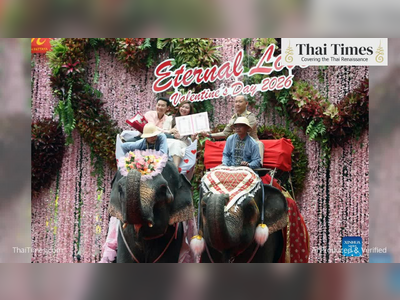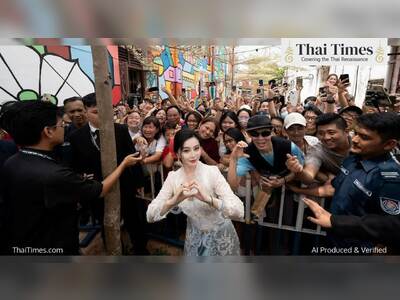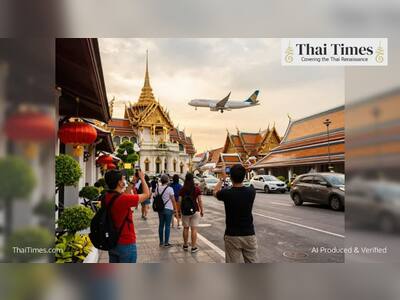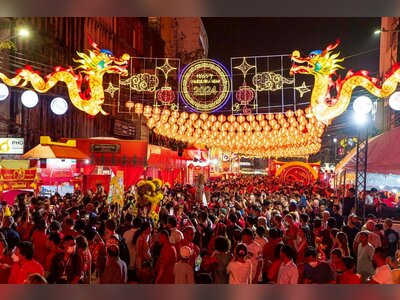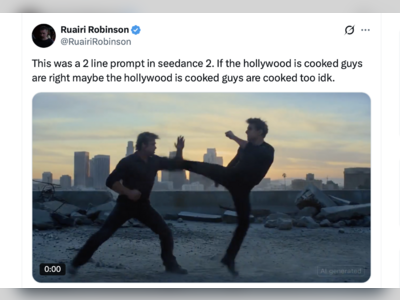Moo Deng: Viral Baby Hippo Charms Tourists, Spurs Conservation at Thai Zoo
A seven-month-old pygmy hippo at Khao Kheow Open Zoo is attracting thousands of visitors while raising awareness for wildlife conservation.
At Khao Kheow Open Zoo in Chon Buri, a seven-month-old pygmy hippopotamus named Moo Deng has become an unlikely internet sensation and the zoo’s star attraction.
Her Thai nickname – which translates to 'bouncy pig' – was chosen by over twenty thousand fans in a public naming poll.
Born in July 2024 to parents Jona and Tony, Moo Deng is the pair’s seventh offspring, and she has quickly bounced her way into the hearts of animal lovers across the country.
Moo Deng’s adorable antics first went viral on social media in Thailand and beyond, turning the tiny hippo into an overnight celebrity.
Videos of the chubby, playful calf splashing in her pool and nuzzling up to her keepers spread rapidly online.
Since her debut, visitor numbers at Khao Kheow Open Zoo have soared – on weekends, the zoo now sees over double its usual attendance, jumping from around three thousand to six to seven thousand guests per day as crowds flock to glimpse the famous baby hippo.
Moo Deng’s cuteness has also spawned an outpouring of fan creativity.
Visitors often turn their snapshots of her into memes, which are widely shared by Thai and international fans on social platforms.
Even a K-pop star reposted a photo of the 'hippo starlet' on Instagram, introducing Moo Deng to millions of new admirers.
Now the internet’s favorite hippo even has her own theme song – an upbeat fifty-second ditty called 'Moodeng Moodeng' – released in Thai, English, Chinese, and Japanese by a Thai music label.
The catchy tune, with lyrics about the 'bouncy' baby calling her mother to play, is a testament to Moo Deng’s popularity as a feel-good icon.
The zoo has embraced Moo Deng’s fame and is channeling it toward positive ends.
It rolled out limited-edition hippo-themed merchandise, including a pair of pants featuring the lovable calf, which drew enthusiastic demand from visitors.
Zoo officials even initiated a move to trademark 'Moo Deng the hippo,' both to prevent unauthorized commercial use of her image and to raise funds for animal care programs at the zoo.
'By trademarking Moo Deng, we hope to gain more income to support activities that will make the animals’ lives better,' one zookeeper explained.
In short, Moo Deng’s immense appeal is not only boosting tourism but also directly benefiting wildlife conservation efforts at the park.
Moo Deng and her mother Jona enjoy a trough of fresh vegetables – a simple scene that speaks to the attentive care they receive at feeding time.
Jona’s robust health (she has successfully given birth to seven calves including Moo Deng) showcases the success of Khao Kheow’s breeding program for this endangered species.
The thriving mother-calf duo has become a living symbol of the zoo’s commitment to wildlife conservation and animal welfare.
Khao Kheow Open Zoo, a sprawling two-thousand-acre 'open zoo' in eastern Thailand, prides itself on its conservation mission.
It operates breeding programs for numerous endangered species – from pygmy hippos to the elusive clouded leopard – in an effort to bolster animal populations and genetic diversity.
Unlike traditional city zoos, Khao Kheow’s open layout provides expansive, naturalistic habitats where animals can roam among trees and ponds, mimicking life in the wild.
Zoo officials note that the facility cares for over two thousand animals and adheres to international standards of animal welfare to ensure each creature’s well-being.
Now, the attention generated by Moo Deng is even being leveraged to support conservation beyond the zoo’s gates.
The zoo’s research institute is partnering with global experts to help protect pygmy hippos in the wild.
Plans are underway to fund high-tech tracking of wild pygmy hippos in West Africa, so Moo Deng’s newfound fame can contribute to the survival of her species in its native habitat.
Moo Deng’s celebrity status has not come without controversy.
Some animal welfare groups have voiced concerns that the young hippo may be overly exposed to crowds and confined for entertainment.
In late 2024, international activists urged tourists to boycott Khao Kheow, alleging the zoo was exploiting Moo Deng for profit and not meeting her natural needs.
They pointed to instances of overzealous visitors shouting, splashing water, or throwing objects into the enclosure to provoke a reaction from Moo Deng as evidence of a stressful environment.
Another global animal welfare organization similarly cautioned that the viral sharing of cute Moo Deng content, while seemingly harmless, could inadvertently promote wildlife captivity if not paired with education.
In response, Thai authorities and zoo officials have been quick to defend Khao Kheow’s practices.
The zoo’s director refuted the allegations of mistreatment, emphasizing that Moo Deng is cared for under strict welfare guidelines and constant supervision.
Additional measures – such as installing CCTV cameras and stationing extra staff at the exhibit – were put in place to prevent any harassment of the hippo calf.
Thailand’s Minister of Natural Resources and Environment personally invited the critical groups to visit and see Moo Deng’s condition firsthand, affirming that the zoo upholds international standards in its animal care.
He noted, for example, that a pygmy hippo mother would not successfully raise seven calves over the years unless she was healthy and well cared for – a strong indicator that Moo Deng is in good hands.
The Thai Society for the Prevention of Cruelty to Animals also stepped forward to defend the zoo, calling the allegations misguided and praising the fact that Moo Deng is being raised in a safe, attentive environment.
For visitors arriving at Khao Kheow Open Zoo, meeting Moo Deng in person is a delightful experience often described as the highlight of their trip.
Many guests start lining up as early as nine in the morning for a chance to see the famous pygmy hippo up close.
To accommodate the huge interest, the zoo has set up a rotation system at the exhibit – each group of visitors is allowed a few minutes to watch Moo Deng before making room for the next group, ensuring everyone gets a turn and the calf isn’t overwhelmed.
Visitors are also politely reminded to keep their voices down and never tap on glass or throw food, so that Moo Deng remains comfortable and safe during the continuous stream of admirers.
These simple rules help make the viewing experience enjoyable for both the animals and the tourists.
Moo Deng’s success story is shining a spotlight on ethical wildlife tourism in Thailand.
Travelers looking for responsible animal encounters have several options nationwide where they can enjoy wildlife in engaging ways while supporting conservation and high welfare standards.
Notable examples include elephant sanctuaries and wildlife rescue centers that emphasize education and rehabilitation over performances or direct human interaction.
Supporting these ethical wildlife venues directly aids ongoing rescue, veterinary care, and habitat protection efforts for Thai wildlife.
Each of these attractions offers an up-close wildlife experience with a conscience, similar in spirit to what Khao Kheow Open Zoo aims to provide with Moo Deng.
They highlight how tourism and conservation can go hand-in-hand: by visiting such ethical wildlife venues, animal lovers get unforgettable memories and knowledge, while their attendance and donations help fund the protection of Thailand’s magnificent creatures.
For local and international tourists alike, Moo Deng’s tale – and the places inspired by the same values – show that Thailand can be an attractive and responsible destination for wildlife enthusiasts.
From a tiny hippo creating big waves to elephant sanctuaries leading by example, Thailand is proving that caring for animals can make tourism all the more rewarding.
Her Thai nickname – which translates to 'bouncy pig' – was chosen by over twenty thousand fans in a public naming poll.
Born in July 2024 to parents Jona and Tony, Moo Deng is the pair’s seventh offspring, and she has quickly bounced her way into the hearts of animal lovers across the country.
Moo Deng’s adorable antics first went viral on social media in Thailand and beyond, turning the tiny hippo into an overnight celebrity.
Videos of the chubby, playful calf splashing in her pool and nuzzling up to her keepers spread rapidly online.
Since her debut, visitor numbers at Khao Kheow Open Zoo have soared – on weekends, the zoo now sees over double its usual attendance, jumping from around three thousand to six to seven thousand guests per day as crowds flock to glimpse the famous baby hippo.
Moo Deng’s cuteness has also spawned an outpouring of fan creativity.
Visitors often turn their snapshots of her into memes, which are widely shared by Thai and international fans on social platforms.
Even a K-pop star reposted a photo of the 'hippo starlet' on Instagram, introducing Moo Deng to millions of new admirers.
Now the internet’s favorite hippo even has her own theme song – an upbeat fifty-second ditty called 'Moodeng Moodeng' – released in Thai, English, Chinese, and Japanese by a Thai music label.
The catchy tune, with lyrics about the 'bouncy' baby calling her mother to play, is a testament to Moo Deng’s popularity as a feel-good icon.
The zoo has embraced Moo Deng’s fame and is channeling it toward positive ends.
It rolled out limited-edition hippo-themed merchandise, including a pair of pants featuring the lovable calf, which drew enthusiastic demand from visitors.
Zoo officials even initiated a move to trademark 'Moo Deng the hippo,' both to prevent unauthorized commercial use of her image and to raise funds for animal care programs at the zoo.
'By trademarking Moo Deng, we hope to gain more income to support activities that will make the animals’ lives better,' one zookeeper explained.
In short, Moo Deng’s immense appeal is not only boosting tourism but also directly benefiting wildlife conservation efforts at the park.
Moo Deng and her mother Jona enjoy a trough of fresh vegetables – a simple scene that speaks to the attentive care they receive at feeding time.
Jona’s robust health (she has successfully given birth to seven calves including Moo Deng) showcases the success of Khao Kheow’s breeding program for this endangered species.
The thriving mother-calf duo has become a living symbol of the zoo’s commitment to wildlife conservation and animal welfare.
Khao Kheow Open Zoo, a sprawling two-thousand-acre 'open zoo' in eastern Thailand, prides itself on its conservation mission.
It operates breeding programs for numerous endangered species – from pygmy hippos to the elusive clouded leopard – in an effort to bolster animal populations and genetic diversity.
Unlike traditional city zoos, Khao Kheow’s open layout provides expansive, naturalistic habitats where animals can roam among trees and ponds, mimicking life in the wild.
Zoo officials note that the facility cares for over two thousand animals and adheres to international standards of animal welfare to ensure each creature’s well-being.
Now, the attention generated by Moo Deng is even being leveraged to support conservation beyond the zoo’s gates.
The zoo’s research institute is partnering with global experts to help protect pygmy hippos in the wild.
Plans are underway to fund high-tech tracking of wild pygmy hippos in West Africa, so Moo Deng’s newfound fame can contribute to the survival of her species in its native habitat.
Moo Deng’s celebrity status has not come without controversy.
Some animal welfare groups have voiced concerns that the young hippo may be overly exposed to crowds and confined for entertainment.
In late 2024, international activists urged tourists to boycott Khao Kheow, alleging the zoo was exploiting Moo Deng for profit and not meeting her natural needs.
They pointed to instances of overzealous visitors shouting, splashing water, or throwing objects into the enclosure to provoke a reaction from Moo Deng as evidence of a stressful environment.
Another global animal welfare organization similarly cautioned that the viral sharing of cute Moo Deng content, while seemingly harmless, could inadvertently promote wildlife captivity if not paired with education.
In response, Thai authorities and zoo officials have been quick to defend Khao Kheow’s practices.
The zoo’s director refuted the allegations of mistreatment, emphasizing that Moo Deng is cared for under strict welfare guidelines and constant supervision.
Additional measures – such as installing CCTV cameras and stationing extra staff at the exhibit – were put in place to prevent any harassment of the hippo calf.
Thailand’s Minister of Natural Resources and Environment personally invited the critical groups to visit and see Moo Deng’s condition firsthand, affirming that the zoo upholds international standards in its animal care.
He noted, for example, that a pygmy hippo mother would not successfully raise seven calves over the years unless she was healthy and well cared for – a strong indicator that Moo Deng is in good hands.
The Thai Society for the Prevention of Cruelty to Animals also stepped forward to defend the zoo, calling the allegations misguided and praising the fact that Moo Deng is being raised in a safe, attentive environment.
For visitors arriving at Khao Kheow Open Zoo, meeting Moo Deng in person is a delightful experience often described as the highlight of their trip.
Many guests start lining up as early as nine in the morning for a chance to see the famous pygmy hippo up close.
To accommodate the huge interest, the zoo has set up a rotation system at the exhibit – each group of visitors is allowed a few minutes to watch Moo Deng before making room for the next group, ensuring everyone gets a turn and the calf isn’t overwhelmed.
Visitors are also politely reminded to keep their voices down and never tap on glass or throw food, so that Moo Deng remains comfortable and safe during the continuous stream of admirers.
These simple rules help make the viewing experience enjoyable for both the animals and the tourists.
Moo Deng’s success story is shining a spotlight on ethical wildlife tourism in Thailand.
Travelers looking for responsible animal encounters have several options nationwide where they can enjoy wildlife in engaging ways while supporting conservation and high welfare standards.
Notable examples include elephant sanctuaries and wildlife rescue centers that emphasize education and rehabilitation over performances or direct human interaction.
Supporting these ethical wildlife venues directly aids ongoing rescue, veterinary care, and habitat protection efforts for Thai wildlife.
Each of these attractions offers an up-close wildlife experience with a conscience, similar in spirit to what Khao Kheow Open Zoo aims to provide with Moo Deng.
They highlight how tourism and conservation can go hand-in-hand: by visiting such ethical wildlife venues, animal lovers get unforgettable memories and knowledge, while their attendance and donations help fund the protection of Thailand’s magnificent creatures.
For local and international tourists alike, Moo Deng’s tale – and the places inspired by the same values – show that Thailand can be an attractive and responsible destination for wildlife enthusiasts.
From a tiny hippo creating big waves to elephant sanctuaries leading by example, Thailand is proving that caring for animals can make tourism all the more rewarding.
